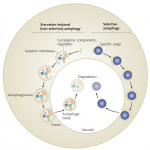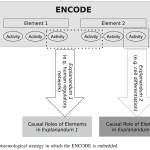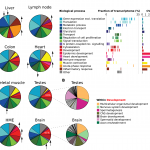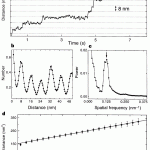Molecular Biology
Well, actually, Yoshinori Ohsumi has won the prize for his work on autophagy, a cellular process you may have never heard of before. The word means "self eating", and it's an important pathway that takes chunks of the internal content of the cell and throws them into the cell's incinerator, the lysosome, where enzymes and reactive chemicals shred them down into their constituent amino acids and other organic compounds for reuse. What makes it interesting is that the cell doesn't want to just indiscriminately trash internal components; there are proteins that recognize damaged organelles and…
Now you've got another paper you can file with that dead salmon fMRI paper: one that analyzes the transcriptome, or excuse me, the thanatotranscriptome, of dead zebrafish and mice.
You should not be surprised to learn that when a multicellular organism dies, it's not as if every single cell is abruptly extinguished: the integrated, functional activity of the individual as a whole ceases, but individual cells struggle on for a while -- they're not getting oxygen or nutrients, in a mouse they're experiencing thermal stress as the body rapidly cools, but it takes a while for all of the cells to…
Stephen Hsu thinks super intelligent humans are coming. He thinks this because he's very impressed with genetic engineering (he's a physicist), and believes that the way to make people more intelligent is to adjust their genes, and therefore, more gene tweaking will lead to more intelligent people, inevitably. And not just intelligent, but super-intelligent, with IQs about 1000, even though he has no idea what that means, or for that matter, even though no one really knows what an IQ of 100 means. We're going to figure out all the genes that are involved in intelligence, and then we'll just…
Sean B. Carroll is coming out with a new book called The Serengeti Rules: The Quest to Discover How Life Works and Why It Matters.
This is the molecular biologist Sean Carroll, as distinct from the physicist (who wrote this).
Homeostasis is one of the basic principles of biology. The term can be applied broadly to mean that certain numbers are maintained within a certain range. This could refer to energy flowing through a system, numbers of specific cellular products like enzymes, numbers of individual organisms in an ecological system, etc. It is not so much that numbers don't change.…
There are some scientific technologies that rapidly become ubiquitious and indispensible, and they become the engine that drives tremendous amounts of research, win Nobel prizes, and are eventually taken for granted. Polymerase chain reaction (PCR) is one example: PCR is routine in molecular biology now, but I remember when PCR machines were magical objects of reverence, and you were cutting edge when you used one. No more; I actually tell my senior students presenting their final thesis presentation that they don't have to explain what PCR is anymore, everyone knows what it is and how it…
This could get interesting. I've seen a lot of stories about this recent paper on the tardigrade genome:
Horizontal gene transfer (HGT), or the transfer of genes between species, has been recognized recently as more pervasive than previously suspected. Here, we report evidence for an unprecedented degree of HGT into an animal genome, based on a draft genome of a tardigrade, Hypsibius dujardini. Tardigrades are microscopic eight-legged animals that are famous for their ability to survive extreme conditions. Genome sequencing, direct confirmation of physical linkage, and phylogenetic analysis…
[Note: My flight home from London was delayed until quite late; so unfortunately another "rerun" is in order. This one's from three years ago, and I actually consider it one of my "classics." It was also originally published at my not-so-super-secret other blog and represents the first time I tried to put together my concept of a "central dogma" of alternative medicine into a semi-coherent form. Ultimately, this lead to my talk The Central Dogma of Alternative Medicine, given at Skepticon last year. If you've been reading less than three years, it's new to you. If you haven't, you really…
Dan Graur has snarled at the authors of a paper defending ENCODE. How could I then resist? I read the offending paper, and I have to say something that will weaken my own reputation as a snarling attack dog myself: it does make a few good points. But it's mostly using some valid criticisms to defend an indefensible position.
Here's the abstract.
In its last round of publications in September 2012, the Encyclopedia Of DNA Elements (ENCODE) assigned a biochemical function to most of the human genome, which was taken up by the media as meaning the end of ‘Junk DNA’. This provoked a heated…
Dan Graur has suggested some changes to the classification of DNA. It's one more pile of terminology to keep straight, but the distinctions are conceptually useful -- I particularly appreciate literal vs. indifferent DNA as subdivisions of functional DNA.
The pronouncements of the ENCODE Project Consortium regarding “junk DNA” exposed the need for an evolutionary classification of genomic elements according to their selected-effect function. In the classification scheme presented here, we divide the genome into “functional DNA,” i.e., DNA sequences that have a selected-effect function, and “…
That paper that proposed that most cancers were due to bad luck, that is, that they were a consequence of biological factors that could not be controlled, has been surprisingly controversial. I thought it was a fairly unsurprising paper that confirmed what we already suspected, but wow, the furious pushback has been something to behold.
Today, though, a couple of MDs have responded to the paper and reinforce what I said.
Steven Novella thinks the general logic is sound.
This is an interesting study and it will be interesting to look at replications and other methods, if they are available, of…
Since we still have someone arguing poorly for the virtues of the ENCODE project, I thought it might be worthwhile to go straight to the source and and cite an ENCODE project paper, Defining functional DNA elements in the human genome. It is a bizarre thing that actually makes the case for rejecting the idea of high degrees of functionality, which is a good approach, since it demonstrates that they've at least seen the arguments against them. But then it sails blithely past those objections to basically declare that we should just ignore the evolutionary evidence.
Here's the paragraph where…
Ophelia has summarized a series of science questions Richard Dawkins asked on Twitter. Hey, I thought, I have answers to lots of these -- he probably does, too -- so I thought I'd address one of them. Maybe I can take a stab at some of the others another time.
I like this one, anyway:
Why do cells have the complete genome instead of just the part that’s needed for their function? Liver cells have muscle-making genes etc.
My short answer: because excising bits of the genome has a high cost and little benefit, and because essentially all of the key exaptations for multicellularity evolved in…
Dang, I teach all this stuff about genes and chromosomes and epigenetics, but I don't have the advantage of giant floating holographic molecules floating around me. Maybe I'll have to steal this for my classes.
Although it could use some discussion of Blaschko's lines, to explain why you get a stripey pattern rather than just salt-and-pepper.
Oh, that's right -- that's what philosophers are good for. They're really good at questioning models. John Wilkins has been busily dismantling the cheap and easy metaphors we use to describe molecular biological concepts in a series of posts, taking on genes as language, other popular gene myths and metaphors, and explaining why genes aren't information. The problem is that when we explain stuff we know well to students, we use metaphors and analogies to get across the initial ideas, and unfortunately, because scientists are human, the metaphors take on a life of their own and sometimes…
Recently, Carl Zimmer made a criticism of the computer animations of molecular events (it's the same criticism I made 8 years ago): they're beautiful and they're informative, but they leave out the critical aspect of stochastic behavior that is important in understanding the biochemistry. He's talking specifically about kinesin, a transport protein which the animators are particularly fond of illustrating.
Every now and then, a tiny molecule loaded with fuel binds to one of the kinesin "feet." It delivers a jolt of energy, causing that foot to leap off the molecular cable and flail wildly,…
Razib Khan poked me on twitter yesterday on the topic of David Dobbs' controversial article, which I've already discussed (I liked it). I'm in the minority here; Jerry Coyne has two rebuttals, and Richard Dawkins himself has replied. There has also been a lot of pushback in the comments here. I think they all miss the mark, and represent an attempt to shoehorn everything into an established, successful research program, without acknowledging any of the inadequacies of genetic reductionism.
Before I continue, let's get one thing clear: I am saying that understanding genes is fundamental,…
I don't understand how this happens. You've got a good academic position. You're bringing in reasonable amounts of grant money. You're publishing in Nature Genetics and Nature Structural and Molecular Biology. And you don't even understand the basic concepts in your field of study.
For instance, here's a press release titled "Cause of genetic disorder found in 'dark matter' of DNA".
For the first time, scientists have used new technology which analyses the whole genome to find the cause of a genetic disease in what was previously referred to as "junk DNA". Pancreatic agenesis results in…
Last month, I wrote about the terrible botch journalists had made of an interesting paper in which tweaking regulatory sequences called enhancers transgenically caused subtle shifts in the facial morphology of mice. The problem in the reporting was that the journalists insisted on calling this a discovery of a function for junk DNA — the paper itself said no such thing, but somehow that became the dominant message of the popular press coverage. Strange. How did that happen?
So Dan Graur wrote to the corresponding author to find out how the junk crept in. He found out. It's because the author…
Over the years, I've not infrequently noted that there is a serious disconnect between what most people would think of as "natural" and what is considered "natural" in the world of "complementary and alternative medicine," or, as I like to call it, CAMworld. I started thinking about this again after yesterday's post about Jessica Ainscough's decision to treat her rare sarcoma with the quackery that is the Gerson therapy and how her mother's decision to use the same quackery, instead of surgery, radiation, and chemotherapy, resulted in her untimely demise. Reading over Jessica Ainscough's blog…
I'm trying to raise money for the The Leukemia & Lymphoma Society, and I promised to do a few things if we reached certain goals. I said I'd write a post microRNAs and cancer if you raised $7500. And you did, so I did. I kept my clothes on this time, though, so here's a more serious picture of yours truly: this is what my students see, which is slightly less terrifying, nicht wahr?
If you want more, go to my Light the Night fundraising page and throw money at it. If we reach our goal of $10,000, I'll organize a Google+ Hangout to talk about cancer. Note that we're also getting matching…







